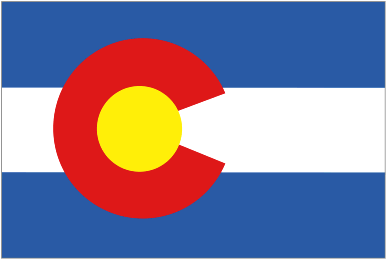Last Friday, I made my first monetary contribution to a political cause. I sent more money than I can probably afford, being a poor college student, to the candidate who I plan on voting for in November. I sent my money to the campaign to elect Ralph Nader.
This is now the sixth presidential candidate who I have supported over the course of this election cycle (for the record, the others, in order, are: Dennis Kucinich, Ron Paul (briefly, before returning to Kucinich), John Edwards, Hillary Clinton, Barack Obama). It's not that I'm indecisive; if Kucinich had managed to gain any steam whatsoever in the Democratic primary season, I would have supported him for as long as he chose to stay in it. It's just that, each time my candidate has dropped out or been defeated, I have simply settled for the next best out of all the terrible options. When Kucinich dropped out, I settled for Edwards; then he dropped out, and I settled for Clinton; then she was defeated, and I settled for Obama.
But it has finally become clear to me that that's no way to choose who to support in a presidential race. What is this nation coming to, if everyone is willing to exercise their most vital right, the right to vote, to put a crappy candidate in office just because they are less crappy than the other guy? It's not our fault, really, that that mindset has so thoroughly saturated our political thinking. The media tells us who has a shot at winning, then acts like they're the only people running; so it makes sense that we often feel like we have to vote for one of them. But if we want to save American democracy from total de facto nonexistence, we have to break free of that. We have to vote for candidates, not for media caricatures or partisan labels.
I do not like John McCain. I do not like Barack Obama. I have been fooling myself into believing that, despite my differences in ideology from each of them, either would make a decent president. That is nonsense. If either of those two becomes president, it means essentially complete continuation of the status quo, just under a different name. They're both guilty of lack of principles and partisan hackery. They're both typical politicians, who care more about their personal advancement than the well-being of the people. They both belong to the deeply entrenched, deeply flawed two-party system, which bickers about almost nothing of substance, but occasionally mentions a few small issues that for some reason set people against each other and churn out votes. I don't understand how anyone could seriously think that either of them will change that reality. John McCain abandoned every one of his principled disagreements with his party in order to get its nomination, and even Barack Obama has now revealed his true colors by doing the same now that he no longer needs to distinguish himself to get his party's nomination (just as I always figured he would). But the media has convinced us all that John McCain is a maverick, Barack Obama is a change agent, and the Theme of the Election is Change; so supporters of both sides continue believing that their candidate is different than the crappy politicians that have dominated Washington for so long. Nonsense, I say!
Ralph Nader happens to be the most viable third-party or independent candidate in the race. But if that alone were the reason I plan on voting for him, I would be a hypocrite. No, there are other, more important reasons.
On Ralph Nader's website, under "Issues", there is a list of 14 stances that Ralph Nader holds that neither Obama nor McCain do, and I agree with him (for the most part) on every one:
1. Adopt single payer national health insurance. Barack Obama, as well as the entire Democratic party establishment, refuses to be truly bold on the health care issue. Their ideas are nearly identical to the Republicans'; they just use different words to describe them. "Universal health care" is not a true description of any system that is not single payer.
2. Cut the huge, bloated, wasteful military budget. The 2008 federal budget includes over $583 billion in military spending (according to Wikipedia). That's almost twice the spending of the entire European Union, and almost half of the military spending of the entire world. Neither Obama nor McCain really want to change this significantly. 'Nuff said.
3. No to nuclear power, solar energy first. Nuclear power is great, in terms of efficiency and how much power it can produce. But what do you do with the waste? Why is it OK to bury it under some mountain? Especially if there are other, 100% clean, alternatives?
4. Aggressive crackdown on corporate crime and corporate welfare. According to the FBI, robbery and burglary cost Americans $3.8 billion a year. Corporate fraud costs somewhere in the hundreds of billions of dollars annually. More people die on the job or due to corporate malpractice than are murdered each year, too. Obama and McCain, being major-party puppets, aren't going to crack down on corporations whatsoever.
5. Open up the Presidential debates. The presidential debates are one of the ways the media keeps people in line voting for major party candidates. Changing this is a vital step in the preservation of American democracy.
6. Adopt a carbon pollution tax. Something needs to be done about global warming, and this option seems far superior to a cap-and-trade policy, which is the only option that's been taken seriously in Washington. Nader seems to understand how this could be implemented well, including the fact that it would require international cooperation.
7. Reverse U.S. policy in the Middle East. Nader supports a two-state solution to the Israeli-Palestinian mess, and would almost certainly make it one of his administration's top priorities. He wants a quick withdrawal from Iraq, too; this is one of the few areas I disagree with him on, because I think the situation in Iraq is going well enough to justify our continued presence there, at least for a while longer.
8. Impeach Bush/Cheney. Um, do I have to say anything here?
9. Repeal the Taft-Hartley anti-union law. I don't personally know much about this, but from what I've read into it, it doesn't seem like a law that ought to be on the books. It's this sort of legislation that lets corporations like Wal-Mart do things like force their employees to sign anti-union pledges. Repealing it sounds like a good idea to me.
10. Adopt a Wall Street securities speculation tax. A lot of problems have come out of stock market speculation over the years. A tax on this behavior would make people think twice about it, as well as generate revenue (and it would affect rich folks the most, making it a nice addition to our progressive tax system).
11. Put an end to ballot access obstructionism. Obviously, this is a pet issue for Nader, who has been put through hell by various states and political parties every time he has tried to get on ballots. But that doesn't make it any less important. How can we say that, in America, "anybody can be president," when many states require tens of thousands of signatures in order to get your name on the ballot?
12. Work to end corporate personhood. It's funny that this is listed here, because I happen to know a lot about it. One of my high school debate resolutions concerned corporate personhood. Basically, it's the practice of viewing corporations as people in the eyes of the law (i.e., any place the law says "person"/"individual"/etc., it applies to corporations as well). This stemmed mostly from Supreme Court decisions in the late 1800s that extended the protections of the 14th Amendment to corporations. This has been a major contributing factor in making corporations as powerful as they are today, particularly in the political sense. The fact of the matter is, corporations are not people, so there's no reason to treat them as such under the law.
13. Defend, restore, and strengthen the civil justice system. What Nader is referring to here is the weakening of tort law over the past few decades. At first glance, of course, it seems like weakening tort law is a good thing; when someone can sue McDonald's for their coffee being hot, there's obviously a problem. But Nader insists that there has been a large effort on the part of corporations to "[chip] away at state and federal laws designed to protect individuals from the rapacious wrongdoing of large multinational corporations." And if that continues, it's not hard to imagine a lot of harm being done, as corporations become more and more immune to punishment for their bad actions.
14. Adopt the National Initiative [for Democracy]. This plan involves setting up a system of legislation by petition and national vote, much like most state governments have in place. The benefits of this plan can be read on Ralph Nader's website, and the details can be read on the official website of the movement.
This list tells me a couple of very positive things about Ralph Nader. First, he has some damn good ideas. Second, and much more importantly, he wants to address some of the issues that no one ever talks about, yet which are of vital importance to everyone in this nation - the issues that have been missing from American government for so long. That alone is a powerful argument for Ralph Nader's candidacy, even if you disagree with the guy.
This is my final answer to the question of who I support in the 2008 presidential campaign. I intend to actively promote Nader/Gonzalez to everyone I know, from now until election day. Maybe it's a lost cause...but at least I feel like it's a principled lost cause. And that is infinitely more important to me than picking a winner.




